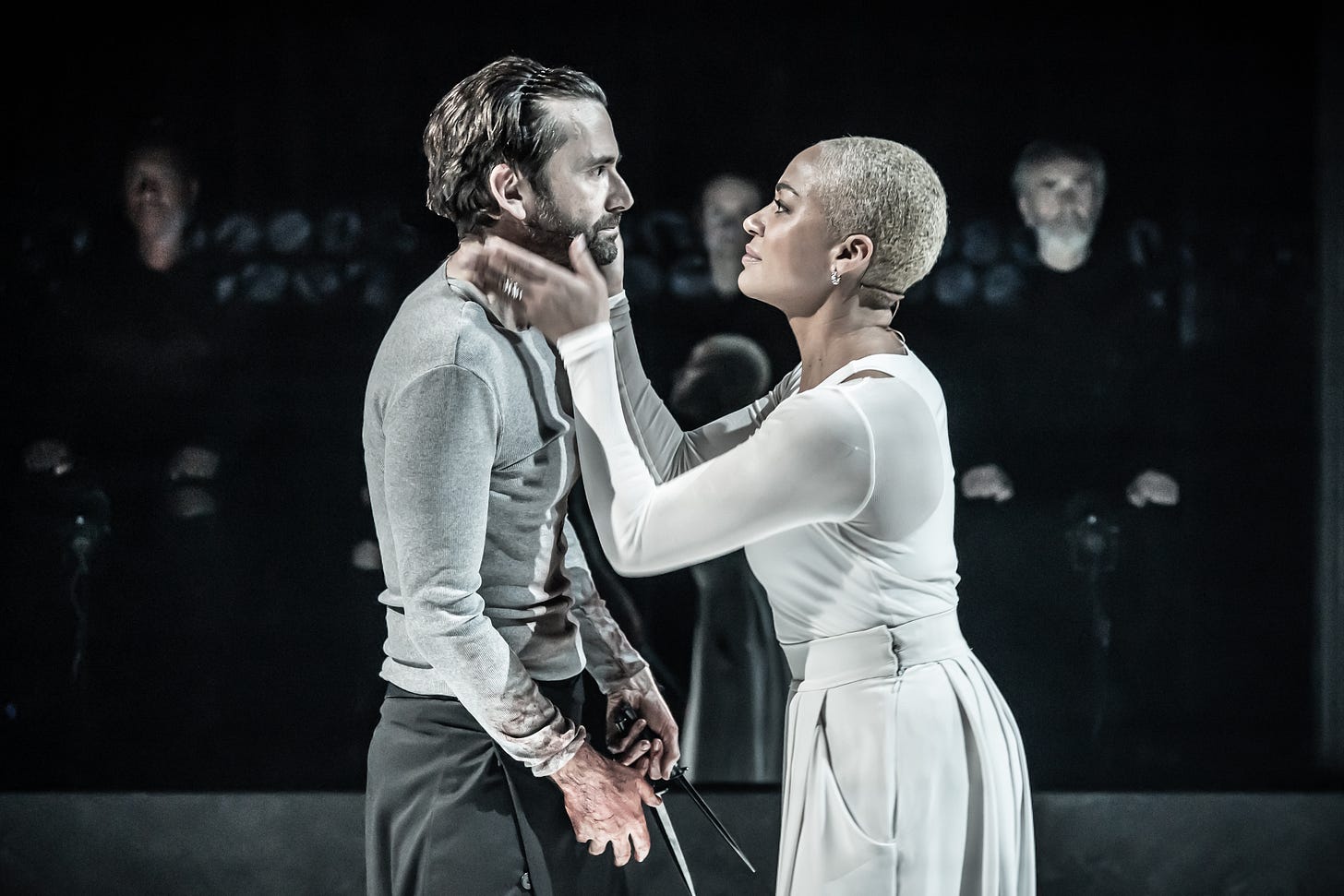Theatre Review: 'Macbeth' with David Tennant and Cush Jumbo
Filmed live at the Donmar Warehouse in London, Shakespeare's 'Scottish play' will be in select cinemas starting February 5
One of the delights (when possible) in seeing a Shakespearean production is the digital age we live in. Not by any stretch of the imagination, it can serve its purpose well, unencumbered by distance and time.
For the uninitiated, Macbeth (known as “The Scottish Play,” due to its superstition-plagued theatrical curse), as most works of the Bard, is best experienced as a visual presentation. The cadence, the tone and the physicality of his plays are more appreciated on a level that breaks the age-old trope of a dry read on the page in a required school textbook.
The performances of David Tennant (Macbeth) and Cush Jumbo (Lady Macbeth), directed by Max Webster and filmed at its initial run at the Donmar Warehouse in London, bring a new perspective and star turn to the most tragic of the playwright’s works. The challenge with a theatrical showing is the contrast and comparison from an in-person attendance to a slightly removed viewing on the screen. Thankfully, for a vast majority residing outside the UK, this medium is a satisfying alternative.
Of note, one of the most critical aspects in the UK press was the use of headphones by theatregoers for the utilization of binaural audio. The technique of allowing the audience to become one with the cast and simultaneously fed sound effects — birds cawing, wind rustling, and the live music — was one of the more unsympathetic notes mentioned numerous times during its run. With this cinema outing, that faultfinding is not found.
Instead, we’re brought into the sparse environment much closer to being onstage given the vastness of the screen. Capture director Tim Van Someren, through the use of handheld camerawork combined with overhead and panoramic framing, allows the viewer a unique invite not allowable during a live theatrical presentation: extreme close-ups of Tennant’s tortured deliveries, accentuated by his angular facial structure, drive home the conflict of his actions; Jumbo’s gliding movements as her Englishness tumbles forth, both in agony and sympathy as she battles complicity in her husband’s murderous spree. Her psychological demons are simultaneously haunting and chilling.
The minimalist approach in staging and costuming, both courtesy of Rosanna Vize, keeps the center of attention on the action. The use of an elevated white platform that serves several functions, and sliding glass panes in the background (that intentionally separate the cast in moments of participation), linked with the company-matching grey and black structured apparel — minus Jumbo’s flowing white robing emphasizing Lady Macbeth’s femininity — sets the spectator unencumbered to the adherence of traditional enactments.
In response to those established and familial renditions of Macbeth, it pays mind to know that this is one of the most violent and sanguineous of Shakespeare’s works. While paired down in timing to accommodate a modern-day retelling, numerous scenes remain adherent to the story, including on- and offstage graphic depictions of murder, suicide, and PTSD. If you’re inherently uncomfortable with that mindset, this is definitely not the Shakespeare play for you.
The cast is complimentary and worthy of the showcase this medium provides. Chief standouts are Ros Watt as Malcolm, Cal MacAninch as Banquo, and Jatinder Singh Randhawa as The Porter/Seytan, who facilitates the hilarious interlude (Act 2, Scene 3) by way of updating his audience interaction using several in-jokes relevant to today’s modern theatre protocols — which are entirely relatable to the attendees in the Donmar. Lighting designer Bruno Poet and sound designer Gareth Fry are also commendable in their respective roles.
Macbeth with David Tennant and Cush Jumbo, presented by Trafalgar Releasing, in partnership with the Donmar Warehouse, opens 5 February in cinemas worldwide. Tickets are available to purchase here.










